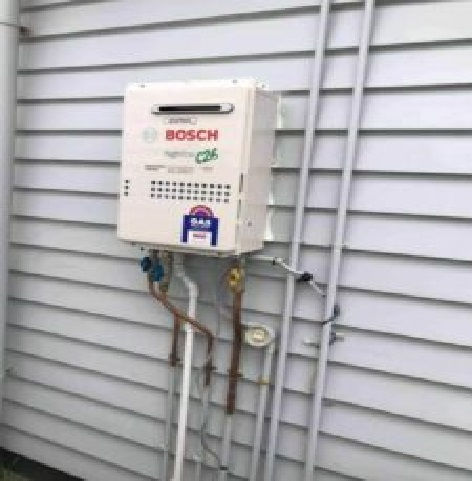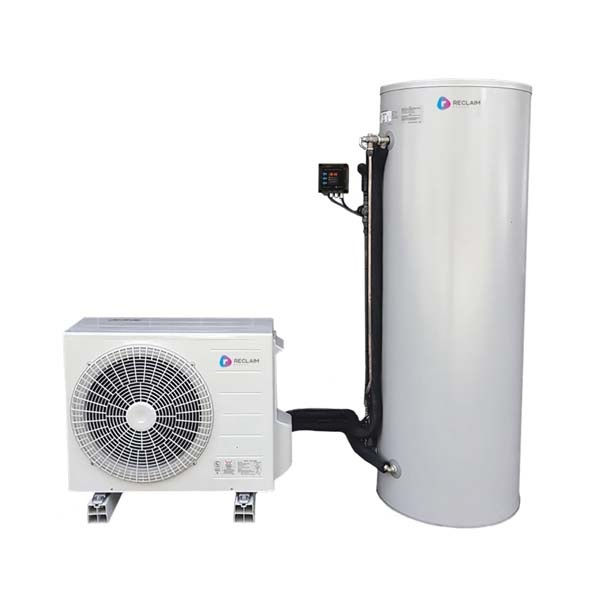- Hotwater solutions

- Dec 5, 2024
- 3 min read

gas hot water system have long been a preferred choice for homeowners and businesses due to their efficiency, reliability, and ability to provide consistent hot water. Powered by natural gas or propane, these systems heat water quickly, making them ideal for households or facilities with high hot water demand. Whether for residential use, commercial applications, or industrial needs, gas water heaters offer a cost-effective solution.
This article delves into the features, benefits, types, and factors to consider when choosing a gas water heater.
How Gas Water Heaters Work
Gas water heaters operate by burning natural gas or propane to heat water stored in a tank or on-demand through a heat exchanger.
Heat Generation: Gas is ignited by a burner located at the base of the unit, heating the water either in a storage tank or instantaneously as it flows through the system.
Thermostatic Control: A thermostat regulates the water temperature, ensuring it stays within the desired range.
Exhaust System: The byproducts of combustion, such as carbon dioxide, are vented out safely through a flue or exhaust pipe.
Types of Gas Water Heaters
1. Storage Tank Water Heaters
These are the most common type, featuring a tank that holds a specific volume of water, typically ranging from 30 to 80 gallons.
Water is heated and stored, ready for use, making them ideal for households with steady hot water demands.
2. Tankless (On-Demand) Water Heaters
These systems heat water as needed, without storing it.
They are highly energy-efficient, as they only consume energy when hot water is required, and are suitable for properties with intermittent or lower hot water usage.
3. Combination Boilers
These systems combine water heating and space heating in one unit, making them a great choice for energy-conscious homeowners.
They are compact and eliminate the need for separate systems for heating and hot water.
Benefits of Gas Water Heaters
1. Fast Heating
Gas water heaters heat water faster than their electric counterparts. They are particularly advantageous in homes or businesses with high demand for quick and continuous hot water.
2. Energy Efficiency
Modern gas water heaters are designed to maximize energy use, with high-efficiency models consuming less gas while delivering consistent performance.
3. Cost-Effective Operation
With lower fuel costs compared to electricity in many regions, gas water heaters provide an economical solution for long-term use.
4. Dependable Performance
Gas water heaters continue to work during power outages, ensuring an uninterrupted supply of hot water—a critical feature for emergency preparedness.
5. Wide Range of Options
From compact tankless units to high-capacity storage systems, gas water heaters come in various sizes and configurations to suit diverse needs.
Applications of Gas Water Heaters
Residential
Meeting daily hot water needs for bathing, cooking, and cleaning.
Supporting large families or homes with multiple bathrooms.
Commercial
Providing hot water for hotels, restaurants, laundromats, and hospitals.
Ensuring reliable service in facilities with continuous hot water demand.
Industrial
Heating water for manufacturing processes.
Serving as a dependable hot water source for heavy-duty operations.
Factors to Consider When Choosing a Gas Water Heater
1. Capacity
Assess your household or facility’s hot water needs to select an appropriately sized unit.
Consider peak demand to ensure the system can handle simultaneous usage.
2. Energy Efficiency
Look for Energy Star-rated models that minimize fuel consumption and reduce operating costs.
Advanced features like condensing technology improve efficiency further.
3. Venting Requirements
Proper venting is essential for safe operation. Choose between direct vent, power vent, or standard venting options based on your home’s infrastructure.
4. Installation Space
Evaluate the available space to determine whether a tankless or tank model is more suitable.
5. Budget
Consider the initial cost, fuel expenses, and maintenance requirements when comparing models.
Installation and Maintenance
Professional installation is crucial for gas water heaters to ensure safety and optimal performance. Regular maintenance, including flushing the tank, checking the burner, and inspecting the venting system, helps prolong the lifespan of the heater and maintains efficiency.
Conclusion
Gas water heaters are a reliable, efficient, and cost-effective solution for meeting hot water needs in various settings. Whether you choose a storage tank model for continuous supply or a tankless system for on-demand heating, these systems offer unparalleled convenience and performance.
With modern advancements in energy efficiency and safety, gas water heaters remain a top choice for households and businesses seeking dependable hot water solutions. By investing in a high-quality gas water heater and ensuring proper installation and maintenance, you can enjoy consistent hot water for years to come.
Hot Water Solutions
3d Taid Place, Rosedale, Auckland 0800497658
https://www.facebook.com/Hot-Water-Solutions-100885308035357/ https://www.instagram.com/pete_hotwatersolutions/?hl=en https://www.youtube.com/@HotWaterSolutions_NZ



